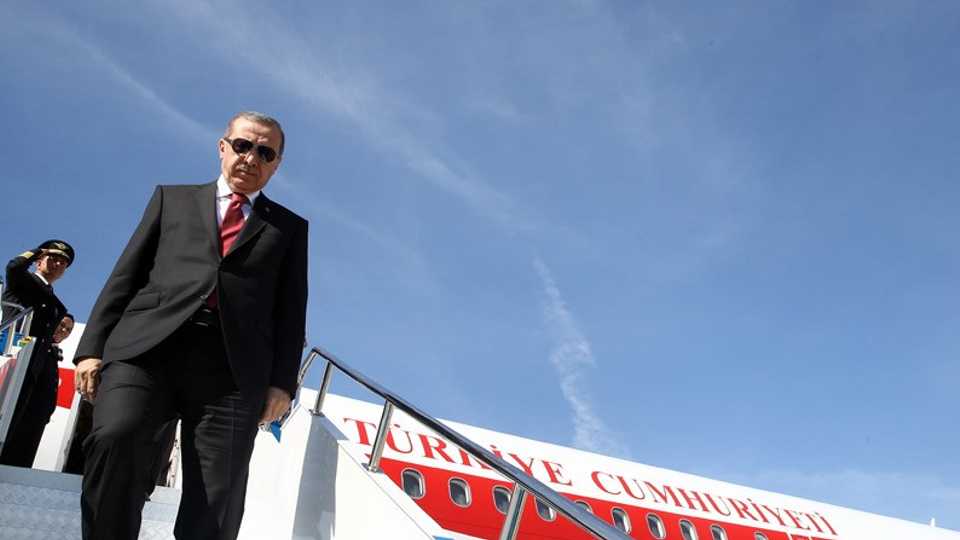
Turkey’s President Recep Tayyip Erdogan will meet his counterpart Vladimir Putin in the Russian coastal city of Sochi on Monday, where the future of Syria is expected to top the agenda.
Russia and Turkey have been cooperating in Syria, despite the fact that Moscow has been backing Syrian regime leader Bashar Assad, while Ankara is backing the opposition.
Both nations have a common interest in fighting Daesh. The terror organisation faces imminent defeat, so both leaders are hoping to discuss the future of Syria.
Three states – Turkey, Russia and Iran – are guarantors of the Astana Talks, which aims politically to solve the Syrian conflict, and it continues on the sidelines of the Geneva Talks brokered by the United Nations.
The Astana Talks led to the implementation of four de-escalation zones in Syria, one of which is in Idlib in the northwest, where Turkish troops and Russian military police are based to secure the zone.
As cooperation continues, Moscow has offered to host the Syrian Congress on National Dialogue to discuss the future of Syria, with the PYD/YPG also being invited. Russia is trying to legitimise the group, but Ankara has opposed this suggestion because it considers the PYD as the Syrian branch of the PKK.
The PKK is recognised as a terrorist organisation by Turkey, the US and the EU, and is responsible for drug and human trafficking, conducting an armed campaign against Turkey and being responsible for the loss of more than 40,000 lives since the 1980s.
Turkey’s Presidential Spokesman Ibrahim Kalin said previously that Russia has “postponed” the Congress.
“Russians told us that the YPG will not be invited,” Kalin added.
The YPG was one of the components fighting against Daesh, to which the US delivered more than 3,500 trucks of weapons, ammunition and aerial support. It also controls most parts of northern and western Syria.
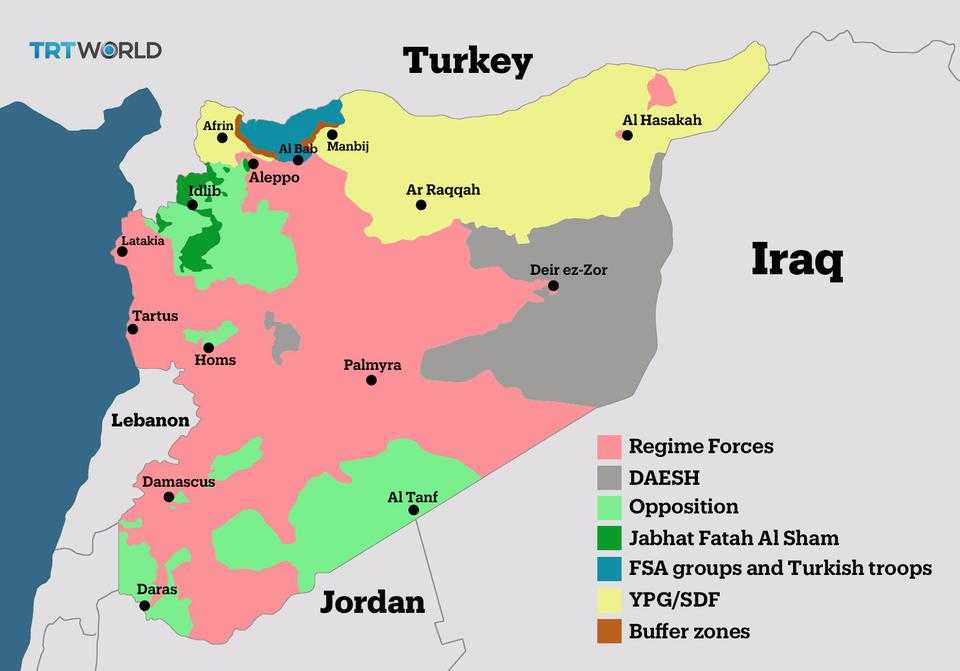
The key issue is that the YPG is protected by Russian and the US soldiers in northern Syria from any operations by Turkish-backed opposition groups from the Operation Euphrates Shield area, a mission to clear Turkish borders from terror organisations.
Russian soldiers and YPG militants are located in Afrin province which borders Idlib, one of the four de-escalation zones that guarantors agreed to in the Astana talks.
Idlib is controlled by Hayat Tahrir al Sham which formerly claimed allegiance to Al Qaeda. The Turkish army stationed observation points to implement de-escalation zones alongside Iran and Russia.
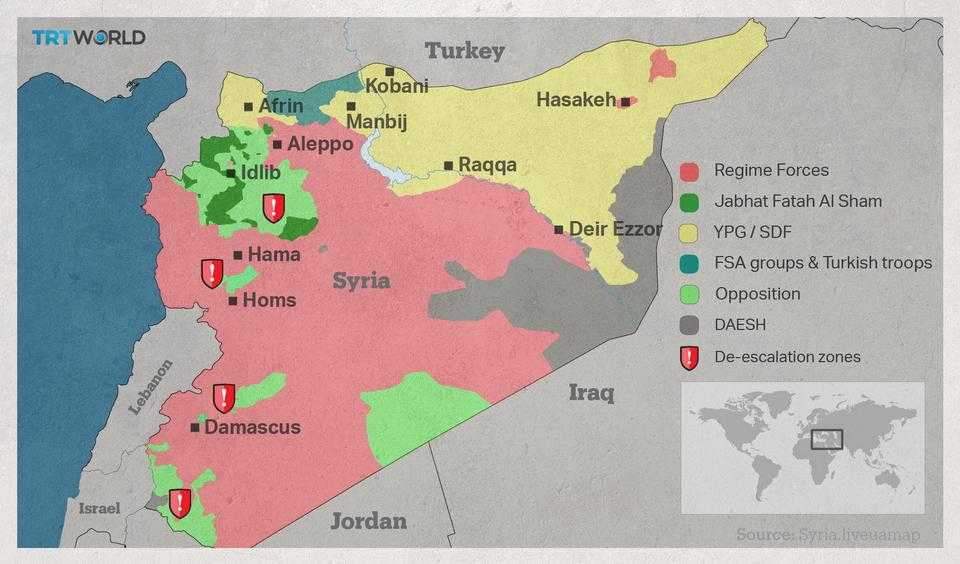
The meeting will be Erdogan’s fourth visit to Russia following the normalisation of Ankara-Moscow relations after Turkish jets downed a Russian SU-34 fighter jet in November 2015 when Turkish airspace was breached. The move was met with sanctions by Moscow.
The normalisation of relations led to Russia-Turkey cooperation in Syria, and an improvement of economic relations. Both leaders plan to also talk about energy during their meeting. Pipelines of TurkStream, a natural gas project that will benefit Russia, Turkey and Europe, reaching as far as the Turkish exclusive economic zone on the Black Sea. The project is expected to be ready by 2019. Trade between Russia and Turkey is worth around $12 billion, and the two leaders have agreed to use local currencies in their bilateral trade.
Turkey has also decided to purchase Russian made S-400 missile defense systems against the regional threats. But it has sparked discussions in NATO over the problem of inter-operability and any possible interference of the NATO defense system. As a member of the alliance, Turkey said that the “purchase of the missiles is completed.”
Second stop: Kuwait
President Erdogan will visit Kuwait on Tuesday to discuss regional issues and to sign several agreements.
Turkey’s bilateral trade with Kuwait is worth around $1.3 billion, consisting of $431 million in exports and $856 million in imports.
The value of projects by Turkish construction companies so far in Kuwait stands at around $6.5 billion.
Kuwaiti Emir Sabah Ahmad al Sabah and Erdogan plan to discuss regional issues, such as the Saudi-led campaign against Qatar and Lebanon.
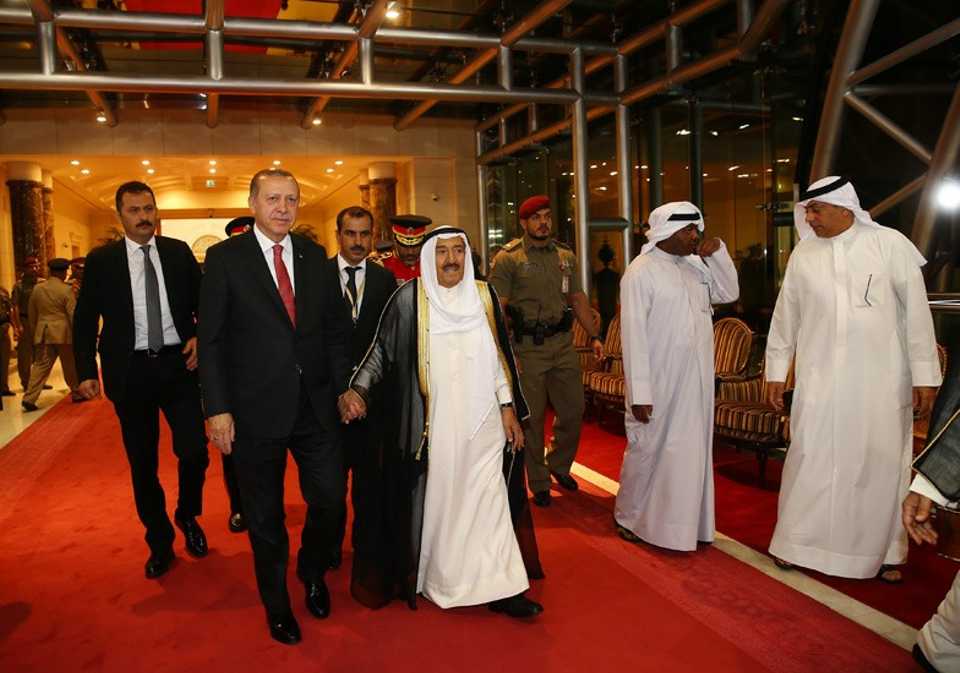
Lebanese Prime Minister Saad Hariri, on November 4, unexpectedly announced he was resigning and accused Iran of meddling in Arab affairs and the Iran-backed Lebanese group Hezbollah of holding Lebanon hostage.
The resignation was followed by harsh Saudi official statements, including accusations that the Lebanese government had declared war against the kingdom. Following the statement, Kuwait, UAE and Saudi Arabia urged their citizens to immediately leave Lebanon.
Kuwait is the mediator in the Qatar crisis, which was initiated by Saudi Arabia. Several Gulf states and some African countries with close relations to Saudi Arabia severed ties with Qatar on June 5, accusing the gas-rich Gulf state of supporting terrorism and backing Iran. Qatar has denied the accusations and called the collective decision “unjustified.”
Third stop: Qatar
President Erdogan will meet with Qatari Emir Sheikh Tamim bin Hamad Al Thani on Wednesday, the last day of his trip, where both leaders will discuss the crisis and bilateral relations.
Turkey, from day one, kept its position of supporting Qatar during the crisis and urging Gulf countries to resolve the crisis through diplomatic means. Following the blockade, Turkey transported hundreds of tonnes of food and necessary goods to Qatari nationals.
Erdogan will also attend the third Turkey-Qatari High-Level Strategic Committee meeting, which aims to deepen bilateral relations in various areas.
The two allies have around $1 billion worth of trade between them.
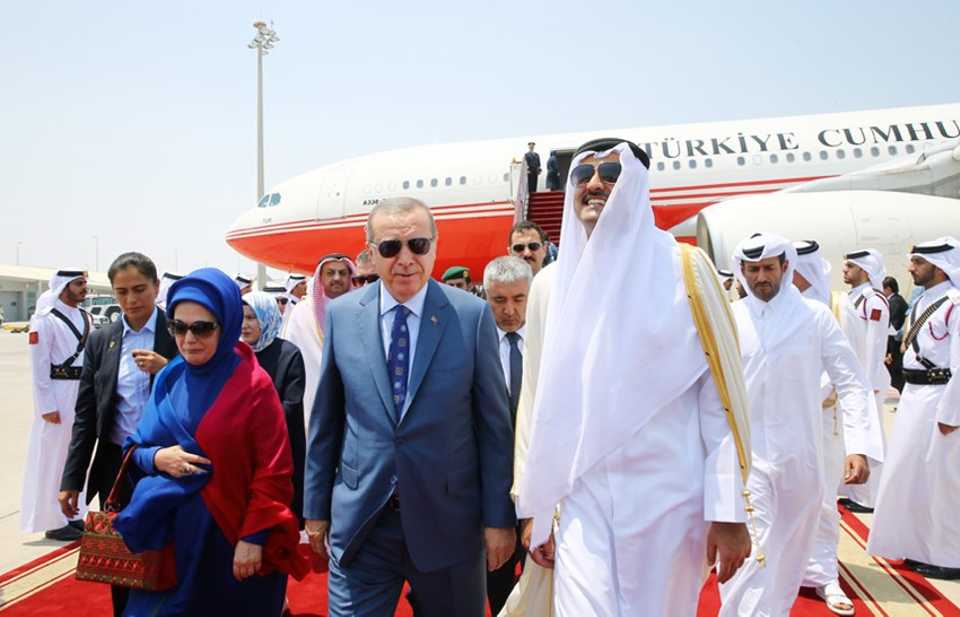
Qatar also hosts a Turkish military airbase. Saudi-led countries had called for the closure of the airbase as a precondition to normalising their relations with Qatar.

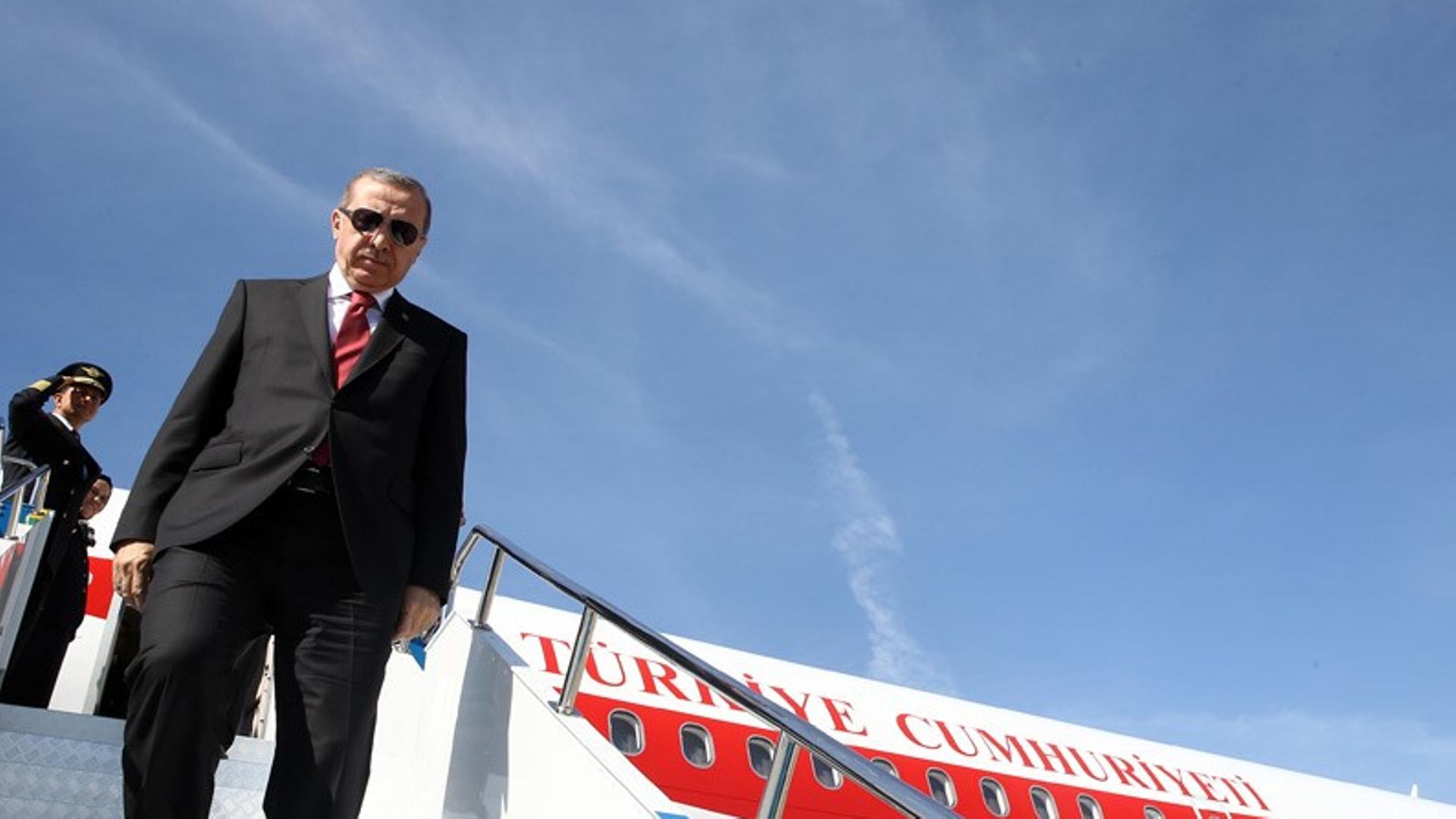








Discussion about this post